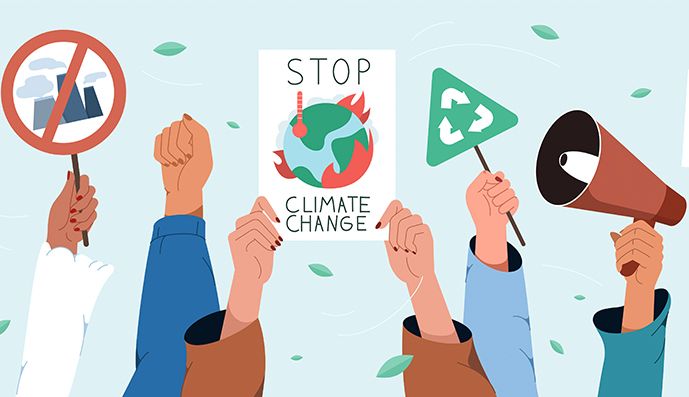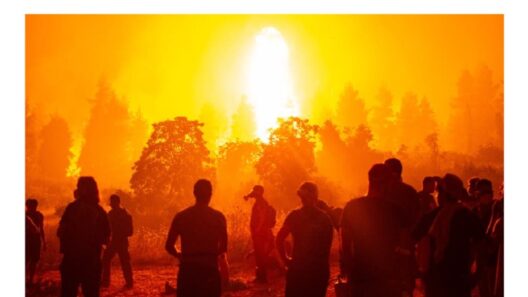In the contemporary discourse on climate change, stakeholders play a pivotal role in both shaping and responding to initiatives aimed at environmental conservation. The stakeholders involved span a multitude of sectors, including governmental organizations, non-governmental organizations (NGOs), private industries, and the general public. Each group brings unique perspectives and expertise, thereby enhancing the complexity of climate dialogue. Understanding what these stakeholders articulate about climate change not only reveals their concerns but may also foster a transformative shift in how societies view environmental stewardship.
Understanding Stakeholder Perspectives
To grasp the intricacies of stakeholder contributions, it’s essential first to delineate their varied perspectives. For instance, governmental organizations advocate for policies grounded in scientific evidence and socio-economic feasibility. Their emphasis often rests upon enacting regulations that mitigate carbon emissions, alongside fostering international treaties aimed at bolstering global cooperation. Conversely, NGOs focus on activist strategies that propel grassroots awareness and mobilization. Their approach fosters community engagement, encouraging individuals to take actionable steps in combating climate change.
Private sector stakeholders present a more multifaceted viewpoint. Businesses, particularly in fossil fuels, have historically been associated with environmental degradation. However, a paradigm shift is occurring as many corporations realize their potential as innovators in sustainable technologies. This shift is catalyzed not only by ethical considerations but also by consumer demand for eco-friendly products and services. Moreover, organizations that once resisted climate action are now adopting corporate social responsibility (CSR) models, recognizing the importance of sustainability for long-term viability.
Diverging Views on Urgency
This multiplicity of perspectives underscores a fundamental divide in how urgent these stakeholders perceive the climate crisis to be. For governmental institutions, the urgency is often tied to imminent policy deadlines and international commitments. Their timelines are frequently dictated by factors such as global summits or electoral cycles, which can lead to an approach that oscillates between proactive and reactive measures, depending on prevailing political winds.
On the other hand, many NGOs espouse a more immediate sense of urgency. They argue that the time for dialogue has elapsed and that immediate and radical action is essential. Through campaigns and public outreach, NGOs convey narratives that evoke an emotional response, thereby galvanizing public support for climate initiatives. They often alert the public to the tangible repercussions of climate change—such as extreme weather events and environmental degradation—that are affecting vulnerable populations and ecosystems across the globe.
Articulating Adaptation Versus Mitigation
Stakeholders also differ in their focus on adaptation versus mitigation strategies. Adaptation proponents argue for resilience-building in communities and ecosystems affected by climate change. These stakeholders step in to furnish solutions that allow societies to cope with the impacts of a changing climate, such as rising sea levels or increased incidence of droughts. Examples include innovative infrastructure projects that incorporate green technology or community gardens designed to enhance food security.
Conversely, mitigation stakeholders focus on addressing the root causes of climate change through the reduction of greenhouse gas emissions. Their discourse gravitates toward the implementation of renewable energy solutions, advancements in energy efficiency, and transitioning to a circular economy. This group typically advocates for systemic change, necessitating large-scale transformations in how industries operate and how individuals consume resources. The discourse occupies a significant space in policy discussions, as it explores the necessary milieu for fostering a sustainable future.
The Emotional Resonance of Stakeholder Narratives
Stories that resonate emotionally can often be more powerful than cold statistics. Stakeholders frequently utilize personal narratives to elucidate the impact of climate change on human lives. These narratives create a sense of urgency and relevance. An NGO might highlight the plight of a community experiencing more intense natural disasters, or a farmer may share how erratic weather patterns are affecting food production. Such accounts humanize abstract data and statistics, pivoting the narrative toward a collective, empathetic response to climate change.
Bridging the Divide: Common Ground and Collaboration
Recognizing overlaps amid differing perspectives can lead to fruitful collaborations among stakeholders. Efforts to forge partnerships are increasingly becoming prevalent as climate change unites disparate interests under a common cause. For instance, businesses might team up with NGOs to develop sustainable practices while simultaneously creating a positive brand image. These joint ventures capitalize on shared resources and expertise, producing innovative solutions while fostering community engagement.
In addition, collaborative approaches can enhance advocacy efforts. Government officials often engage with local community leaders to ensure that policies resonate with those most affected by climate change. This method fosters a participatory framework that encourages local ownership of climate initiatives.
Conclusion: A Call for Inclusive Dialogue
The discourse surrounding climate change is invariably enriched by the multiplicity of stakeholder perspectives. By engaging with these diverse voices, society can foster a richer understanding of the climate crisis. Such inclusivity not only cultivates awareness but also enhances the capacity for meaningful action. Each viewpoint offers vital insights, forming a complex tapestry that reflects humanity’s collective endeavor to grapple with the challenges posed by climate change. In embarking on this journey toward sustainability, it is imperative to listen, engage, and collaborate, ensuring the voices from all sectors are heard in the race against time.







